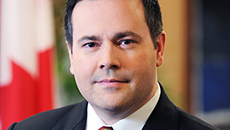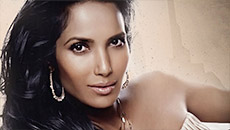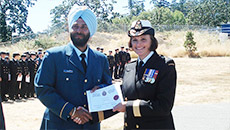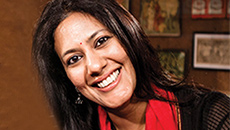The 2013 LPC Leadership race heats up as the qualified candidates battle it out during the debates, tour the nation and vie for votes to become the next leader of the Liberal Party of Canada. Party supporters will cast their ballot for one of eight candidates from April 7 to 14, the day the winner will be announced. DARPAN had the opportunity to chat with Justin Trudeau, who has been one of the perceived frontrunners and a favourite across the nation for individuals, many of whom have fond memories of his father Pierre Elliot Trudeau, the 15th Prime Minister of Canada, who held the position from 1968-70 and 1980-84 for the Liberal Party.
Justin, the eldest of three brothers, supported his father’s party from a young age and when he decided to run for Member of Parliament in the Papineau riding for the 2008 federal election, it made headlines across the nation. Justin was not only elected MP, but he won the riding again in the 2011 election. Once again, this young MP is in the spotlight, as he is now in the race for the Liberal leadership, which if he wins, may allow him to follow in his father’s footsteps in the near future.
Our conversation started off early in the morning, and it was refreshing that the first person I talked to was Trudeau, and from the onset of hello and pleasantries, I could hear the passion growing in his voice as the interview continued.
There has been increasing sentiment among Canadians that Trudeau “will be the difference maker for the Liberals,” so my first question to him was ‘How are you going to change the fortunes of the federal Liberal Party, which has lost its prominence to the Tories and NDP?’
“I think at the center of it is an understanding that the Liberal Party needs to learn how to connect with its grassroots again, we need to start reaching out to Canadians and building an organization that is very much focused on the ground up and not focused on having people made-up policy positions from the top and wait for everyone to come running back to the Liberal Party. We have to reconnect with Canadians, re-engage with them and bring them into being part of the solution,” he says.
In keeping with this train of thought, I wanted to learn more about his vision for Canada if he were to win the leadership race in April.
“I think we need to once again be the broad minded, open hearted and prosperous country that we have always been able to be. We have some very significant challenges coming at us, whether it be the environment, whether it be around the prosperity and poverty, whether it be around human rights and social justice, we have to take a step up once again because Canada is one of those places that has so many opportunities to get it right, we have a responsibility to get it right.
What we have been doing is allowing our politicians to divide us, to play up one region against another and pick and choose who the various parties want to represent. Mr. Mulcair has put an X over the West and Alberta, and he’s playing up to the Quebec separatists. Mr. Harper is anchored in the West and running very much against parts of the East.
There is a real sense that we are not all in this together right now, what we need is to once again be united as we are in our values coast to coast to coast. We have to start talking once again about what our common views and concerns are and not to play up differences the way politics has been too much about over the past years.”
As Canadians, immigration is important to us, as it not only enriches the fabric of our multicultural society but as Canadians, many of our parents and grandparents immigrated
to this nation to pursue the “dream” of providing a better life for their children and so forth. Over the last few years, Canadians have been both supportive and critical of the Conservatives immigration strategies and policies, which have also received criticism from opposing political parties, especially in regards to the family reunification program. I wanted to learn what immigration policies Trudeau would strive to implement.
He responded saying the Tories system of immigration is just about “bringing over workers, units of production. Immigration is about nation building, it is about creating stronger community and for that we need to make sure there is strong family reunification, [where] people are able to bring over their parents and grandparents in a reasonable amount of time.
Right now the fact that people are having to wait 12-15 years before bringing over their parents and grandparents because Mr. Kenney doesn’t think that they are contributing anything to society demonstrates everything that is wrong with this Conservative approach.”
Furthermore, he says qualified people from around the world will want to come to Canada knowing that they can eventually bring their parents over, as they are integral in terms of childcare and family support building stronger communities, which is “an essential part of society, something that the Liberal Party understands that the Conservative Party is completely not in sync with Canadian values on,” he adds.
During his campaign tour, Trudeau made it a point to visit with diverse ethnic communities, and on the morning of our interview, he was actually meeting with Chinese Canadian leaders in Ottawa. He says it’s important to not take these communities for granted, which the Liberal Party has done over the past years allowing the Conservatives “to slip in with a very transactional focus on politics, where they are very much focused on trying to say the right things or promising funding to religious festivals or come to events…are actually not acting in ways that either help small businesses that
so many new Canadians operate or responding to the immigration concerns that Canadians have or even defending immigration and immigrants as a tremendous, important part of the Canadian identity.”
Instead, he says “Every time Mr. Kenney talks about immigration, it’s about cracking down on this or deporting that person or even most recently, talking about two categories of citizenship, making citizenship conditional, making people who are born here different from citizens who choose to become Canadians, which is for me an absolute betrayal of the very core of Canadian citizenship. You get to come here from all around the world to become Canadian so his pandering to the worse kind of fears by talking about acts of war and terrorism as a way of removing Canadian citizenship does create two classes of citizens in a way that is very, very politically short-termed, gain-focused rather than being in the best interest of either new Canadians or the country as a whole.”
Rubina Mahal and David Sharma have been following the 2013 LPC Leadership race and debates, and shared their opinions on Trudeau, what Canada needs for the future and which other candidates are frontrunners from their perspective.
According to Mahal, “Canada needs a change. We have had 8 long years of very domineering
and questionable practices. We need a leader who is empowering, understanding and inspiring. I am not fully convinced Justin Trudeau alone is the answer though. He is still fairly new and has a great deal to live up to. For example, his newest Op-Ed piece where he published his federal education policy is a good start, however I think he needs more meat to his policy. His Op-Ed appeared to focus on just university and college attendance numbers. The way our economy is headed we need more skilled workers than charted accountants. That 19th-century institutional education may not be an ideal venue for teaching 21st-century citizens.”
As she followed the debates, Mahal was impressed with Trudeau’s demeanor while he was attacked by “fellow running mates, he has remained calm and composed. He never seems to panic and keeps his eye on the game. His understanding of the country is far superior than many give him credit for. His hopeful and optimistic Liberalism is entirely consistent with where most of us are. And for those reasons, he stands a chance to lead the Liberal Party to victory. The Liberal Party is what Canada needs, but the question is who can run the best campaign and beat the Conservative Party?”
Since moving to Canada in 1964, Sharma has supported the Liberal Party and says Trudeau is a great speaker, and while some of his views align with his father Pierre, he is an independent thinker, who will make a solid leader for the Liberals. He also likes the fact that Trudeau is reconnecting with Canadians, and bringing them into the solution for a better Canada. As for the debates, he believes Marc Garneau is “a strong competitor and Trudeau’s main opposition.”
Mahal agrees with Sharma saying “Out of the long list of leader hopefuls, Trudeau probably has to worry about Garneau and Murray. Garneau is sharp tongued, knowledgable and has been in the game for a long time. His tenure gives him credibility. Murray is a strong business leader and environmental advocate. She is open with her views and you would know what you are getting should she win the leadership. I think she is a force to be reckoned, and much more well-known in the West but a very strong competition indeed.”
As my time with Trudeau was coming to an end, I asked him ‘Do you feel any pressure from your father’s legacy or time in office?’
“The pressure I feel is pressure around the strong values and supporting ideals that he implanted in this country like the Charter of Rights and Freedoms. There is a strong legacy in terms of values, however in terms of solutions, we live in a very different world, and I am not at all focused on what my father did or didn’t do, am very much focused on what it is that I am going to be doing in the coming years to serve Canadians and get this country to a point of prosperity and opportunities for all.”
As most Canadians are wondering, I had to ask ‘What are your future plans if you lose the Liberal leadership race?’
“I am committed to serving my constituents in Papineau and Canadians through continuing in politics. I will keep being an MP and serve whatever leader the Liberal Party chooses to put in charge.”
At his father’s funeral in 2000, Trudeau’s eloquent and empowering speech made Canadians take notice and view him in a different light, and as the years passed and he transcended into politics and the role of MP, Trudeau has shown his own individual strengths, persona and vision for Canada of the future. Perhaps Mahal sums it up best when she says “Trudeau is likable and would provide a new zest to a tired Canada.” I guess we’ll have to wait and see to find out the LPC Leadership race outcome on April 14th.






